Termed the world’s largest democracy, India is also the world’s second-fastest-growing economy after China. Since independence, the path of the development of India has been filled with potholes that are referred to as “corruption.” Political parties are viewed as the most corrupt of institutions by Indians according to The 2009 Global Corruption Barometer. The Barometer a global public opinion survey released in 2009 by Transparency International, found that 58 percent of Indian respondents believed that politicians were the single most corrupt people. While there is an endless number of politicians who are corrupt in India however, we have only listed the top 10 corrupt politicians who are in the news due to involvement in some or all instances of corruption.
1. Lalu Prasad Yadav

Lalu Prasad Yadav is the most prominent example of corruption, nepotism, and dynastic politics in India. He was the Chief Minister of Bihar as the Chief Minister for more than 15 years, a time in which the social and economic ranking of the state was reduced to the lowest levels when compared with other states in India. While he was Bihar’s Chief Minister Bihar the state was awarded the title of “Jungle Raj.” One of the best examples that demonstrate the Jungle Raj can be taken from the occasion that his daughter’s marriage in 2002 when his friends lifted cars and furniture out of showrooms located in Patna to be used in the wedding. The corruption he was involved in can be described in the following sections:
Fodder Scam (1996)
The Fodder scam is the subject of several investigations in which Lalu Prasad Yadav is accused in six instances. He was found guilty in the very first instance in the case of the 1996 Fodder Scam in which Rs. 33.61 crores was allegedly stolen from the Chaibasa Treasury. He was found guilty in the case of a Fodder Scam in which Rs. 89.27 lakh was swindled from the Deoghar Treasury. Then, in 2018, the defendant was sentenced for the third time to a Fodder Scam in which Rs. 35.62 crores was stolen from the Chaibasa Treasury. In the following year, the same man was sentenced in the 4th case of the Fodder Scam in which Rs. 3.97 crores were swindled from the Dumka Treasury. The fifth instance that concerns the Fodder Scam in which Rs. 184 crores was allegedly stolen from the Doranda Treasury is currently waiting in the court.
Disproportionate Assets Case (1998)
A massive assets case was brought in 1998 against Lalu Prasad Yadav, as well as his spouse Rabri Devi. In 2000 the year 2000, Mr. Yadav was remanded for 11 days and taken into the Beur Jail, whereas Rabri Devi was released on bail for being an official of the CM of Bihar the at the time. In the year 2010, Lalu Yadav won the case before the Supreme Court of India.
Indian Railway Tender Scam (2005)
2005 In 2005, the CBI conducted an investigation into The Indian Railway Tender Scam and arrested Lalu Yadav as well as his entire family members for receiving money in exchange for tenders for the Railway tender during his time as Railway Minister.
Patna Zoo Soil Scam (2017)
Lalu as well as his child Tej Pratap Yadav were identified in the Patna Zoo Soil Scam. The fraud is related to the suspected purchase of soil for more than $. 90 lakhs by Sanjay Gandhi Biological Park in Patna from a company associated with Tej Pratap Yadav without floating any tender.
2. Mulayam Singh Yadav
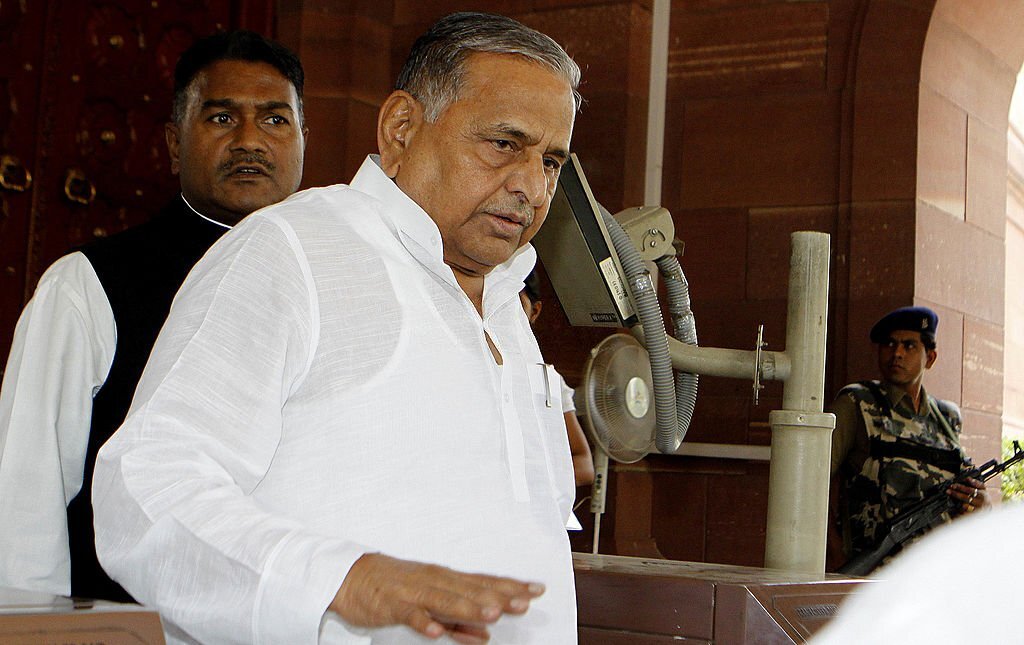
From providing shelter to Yadav Singh corrupt Chief Engineer from Noida Authority, Greater Noida Authority as well as Yamuna Expressway Industrial Development Authority that was arrested in a case worth Rs. 954-crore scam on property in 2012, to spending hundreds of crores of rupees on a notorious Saifai Mahotsav scandal, Mulayam Singh Yadav’s political history is filled with a myriad of cases that do not give him the appearance as a straight-talking politician. There are a myriad of accusations against him, one of the most prominent is the excessive assets case that his Congress head Vishwanath Chaturvedi was accused of Mulayam Singh Yadav as well as his entire family (including Akhilesh Yadav, his younger son Akhilesh Yadav and his daughter-in-law, Dimple Yadav). Chaturvedi brought a case to the Supreme Court in 2005 in opposition to his family, the Yadav family. In his petition from 2005, Chaturvedi cited income tax returns as well as various other “reliable documents” of the Yadavs’ in order to argue that they had a disproportionate amount of assets. On March 1st, 2007 the highest court ordered the CBI to investigate the allegations and to determine whether the plea concerning the assets that were disproportionate was “correct or not.” A petition to reconsider the order was rejected in 2012. The court then retracted Dimple Yadav’s name from the list of persons to be examined since she was not in any office at the time and thus was not investigated in any way. In 2013 Mulayam Singh Yadav, the chief minister of Uttar Pradesh was exonerated of the charge that he abused his position when he was the Chief Minister of Uttar Pradesh to accumulate vast sums of money. The court ruled the fact that it was “grossly insufficient evidence” against the head member of the Samajwadi Party.
Also More: Top 10 Most Corrupt Politicians in The World
3. Pandit Sukh Ram
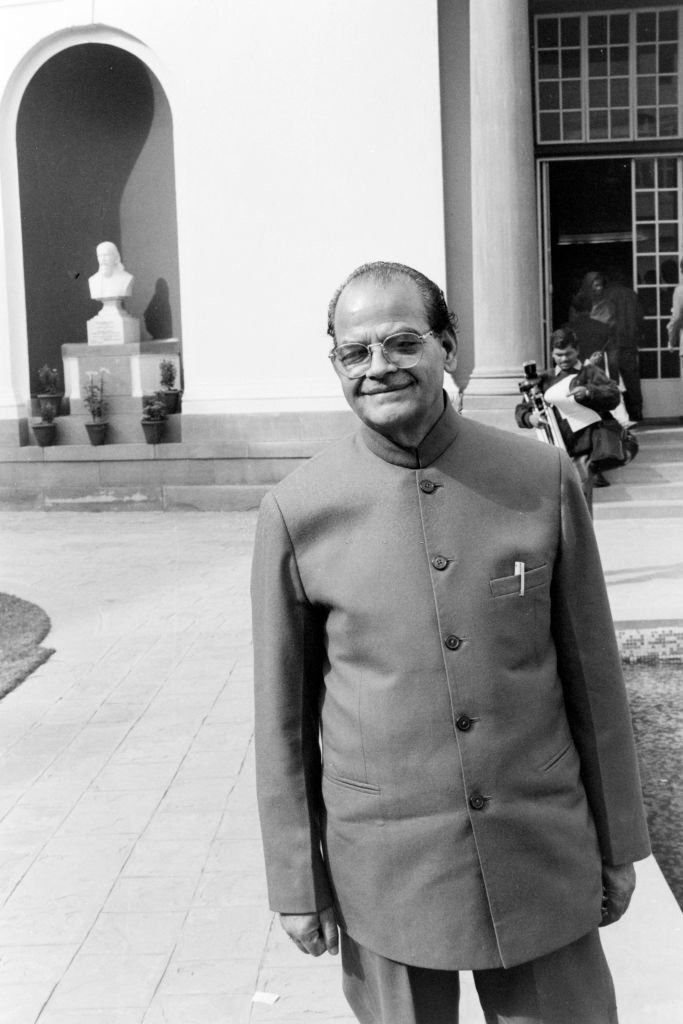
Sukh Ram was the Telecommunication Minister of P. V. Narasimha Rao’s cabinet. In 1996, Rs. 3.6 crores was seized in 1996 by CBI from his residence. The money was hidden in suitcases and bags which Sukh Ram was believed to have gathered due to improprieties in the awarding of the telecom contract. In 2002 the year 2002, a Delhi court gave him three years of a strict prison sentence. In July 2016, the court awarded him imprisonment of five years by a Delhi tribunal in an identical case. He was also convicted of corruption in separate cases, in 2009 and 2002 however, he was not sentenced to prison.
4. Jayalalithaa
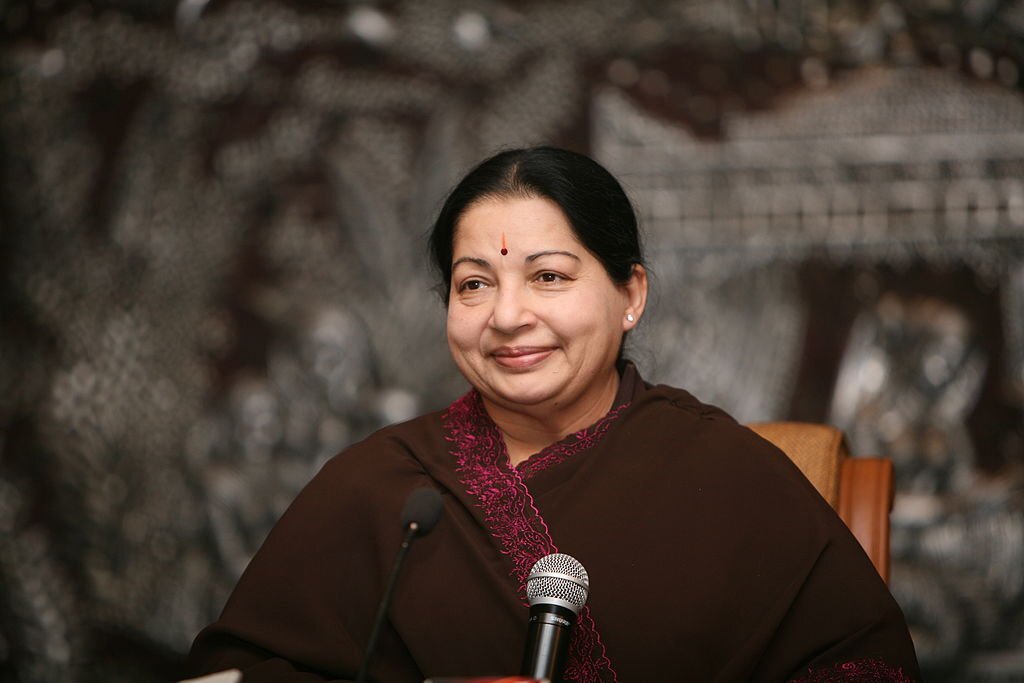
The actor-turned-politician, Jayalalithaa had been more in news for her lavish lifestyle than anything else. She was the Chief Minister of Tamil Nadu as its Chief Minister for more than fourteen years from 1991 until the year 2016. Three years into her term in the position of Chief Minister for Tamil Nadu for the fourth time, she was found guilty in a case of disproportionate assets in 2014, which rendered her ineligible to hold the post; thus she became one of the first Indian Chief Minister (incumbent) who was exempt from the office. On September 27, 2014, she was sentenced to four years in prison and was fined up to Rs. 100 crores by the Special Court in Bangalore. Jayalalithaa’s conviction in the unjust cases of assets was a result of an attack against her that was initiated in the name of Janata Party President Subramanian Swamy (now a member of the Bharatiya Janata Party) on 20 August 1996, on the foundation of the Income Tax Department report on her. Jayalalithaa’s close adviser Sasikala Natarajan, as well as her niece Ilavarasi and her nephew along with the chief minister’s unpopular foster son Sudhakaran, were also found guilty. On February 14, 2017, this case was dismissed. Jayalalithaa was dismissed, after her death on December 5, 2016.
5. Madhu Koda

Madhu Koda was chief minister for Jharkhand from 2006 until 2008. (UPA alliance). He was the 3rd independent legislator to be appointed head in an Indian state following Biswanath Das of Orissa in 1971, and S. F. Khonglam in Meghalaya in 2002. Even though he achieved this extraordinary feat, he could not avoid the pitfalls of corruption. Koda was accused of being associated with a mining fraud that took place in Jharkhand within India. The investigation agencies claimed that he received massive bribes to illegally allocate coal mining and iron ore contracts in Jharkhand during his time as Chief Minister of Jharkhand. It was reported that Koda and his accomplices raked in more than the sum of Rs. 4000 crores from the fraud. In November 2009, Koda was arrested by the Jharkhand Police’s Vigilance division, and on 31 July 2013 after which he was released under bail from Birsa Munda Prison, in Ranchi. In a probe conducted by the Enforcement Directorate (ED) under the laws in The Prevention Of Money Laundering Act (PMLA) A special court for money laundering in Delhi located Koda’s assets valued at around Rs. 144 crores. In December 2017 the court of justice Bharat Parashar sentenced Madhu Koda and handed Madhu Koda a sentence of three years in jail and an amount of fine of 25 lakh. 25 lakh.
6. A. Raja

Andimuthu Raja, popularly known as A Raja was a member of the 15th Lok Sabha representing the Dravida Munnetra Kazhagam (DMK) from the Nilgiris constituency in Tamil Nadu. He was elected to the House four times since 1996. His name was mentioned as a witness in the 2G spectrum scandal which involved the alleged fraud in the sale of telecommunications bandwidth to a select group of organizations at prices that were understating the actual price of this asset. The whole thing took place while Raja was the head of his position as the head of the Telecommunications and IT Ministry. This scandal involving 2G is frequently described as the most significant corruption scandal in recent Indian times, with a total of approximately the sum of Rs. 1,766.45 billion. In the initial F.I.R. that was submitted by the CBI, it was stated that the allocations were not made according to the market price. It was also claimed that the Comptroller and Auditor General (CAG) also claimed that Raja is personally accountable for the selling of the 2G spectrum. Moreover, in August the CAG presented a piece of evidence that showed that Raja personally authorized and signed all of the doubtful allocations. In the wake of the allegations, Raja had to resign from the Telecommunications and IT Ministry on 14 November 2010. According to the CBI and ED estimates that Raja might have earned up to the sum of Rs. 30 billion through the alleged payments to bribes. At the beginning of the year 2011, Raja’s residences and office were searched by the CBI. On February 2, 2011, the CBI took the case of Raja along with his assistant, R. K. Chandolia, and Siddharth Beghura who was the telecom secretary former and put the trio on trial in Tihar Jail. But on the 21st of December 2017 a Delhi court cleared all of the defendants of the case, comprising A. Raja and Kanimozhi in the case of the allocation of 2G spectrum and ruled that 2G’s spectrum fraud did not occur in the first place.
7. Mayawati
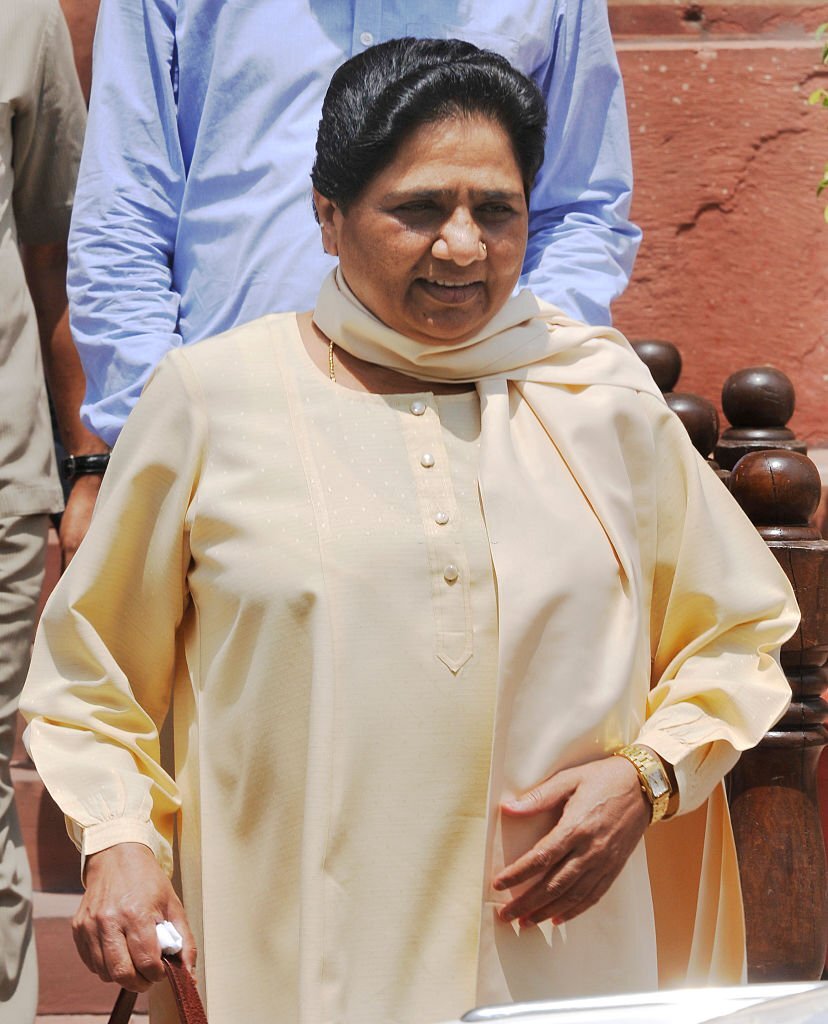
A poor family and achieving the highest levels of political power within Uttar Pradesh, Mayawati could be viewed as a symbol of women’s empowerment. However, the growth in her personal wealth following becoming a politician of power is viewed by critics as a sign of corruption. Mayawati’s corruption allegations can be addressed in the following categories:
Taj Corridor Case (2002)
In 2002, following the discovery of financial irregularities within an investigation into the Taj Heritage Corridor Project, an initiative launched with government officials from the Uttar Pradesh Government to bring improvements to the infrastructure in the main tourist zone in Agra which comprises the Taj Mahal, Taj Mahal, the CBI searched 12 residences including the Mayawati’s residence and submitted the First Information Report against her as well as seven others, following which she was required to quit her post as the chief minister for Uttar Pradesh. In June 2007, however, Governor T. V. Rajeswar declared that there was not enough evidence to pursue her, and in the following days, it was decided that the Taj Corridor case closed before proceeding to trial.
Disproportionate Assets Case (2007-08)
In the year of assessment 2007/08, Mayawati placed amongst the 20 top taxpayers in the country, after having paid an income tax of the sum of Rs. 26 crores. In the past authorities from the CBI had initiated a criminal suit against her over her holding assets that were insignificant to her source of earnings. On the 13th of March, 2012, she declared assets of the sum of Rs. 111.26 million in an affidavit submitted alongside her nomination papers for the Rajya Sabha. On July 6, 2012, the Supreme Court bench of Justice P Sathasivam and Justice Dipak Misra disqualified the disproportionate assets case brought against Mayawati by stating that the court ruled this case unjustified. On the 4th of October, 2012, a request for review was submitted by Kamlesh Verma. However, Kamlesh Verma was denied re-opening the case the Supreme Court declined his request to allow the case to be reopened on August 8, 2013. On October 8, 2013, the CBI concluded their case in Mayawati’s Disproportionate Assets Case.
Statues Case
While she was the Chief Minister for Uttar Pradesh, she commissioned the construction and public display of various monuments that include museums, galleries, parks, and memorials, as well as murals and statues that represent Buddhist and Hindu icons from Dalit and OBC such as Gautama Buddha, Gadge Maharaj, Sant Ravidas, Sant Kabir, Narayana Guru, Jyotirao Phule Chatrapati Shahuji Maharaj Babasaheb ambedkar, BSP party founder Kanshi Ram and herself. After filing a PIL against the spending on these projects that was dismissed, the Supreme Court issued a stay against any further construction on the construction projects on June 9, 2009. The CAG also revealed that there was a sum of Rs. 66 crores in excess costs incurred for the building of the memorials. Contrary to the Supreme Court’s ruling, Mayawati inaugurated the Rashtriya Dalit Prerna Sthal and Green Garden in Noida, built at the cost of the sum of Rs. 685 crores. 685 crores. Indian National Congress accused Mayawati of using taxpayer money. In January 2012 the Election Commission of India ordered that all the statues of Mayawati and the elephant statues (the symbols for the Bahujan Samaj Party), must be covered until February’s Uttar Pradesh assembly elections. In 2015 the Supreme Court continued hearing the PIL but Mayawati along with her party not yet provided proof of the source of the money used to pay for the monuments was sourced.
World Bank Criticism
The Mayawati-led government received criticism from The World Bank for not utilizing the funds offered by the bank to fund various initiatives for development across Uttar Pradesh. In an open letter directed to the Central Government of India issued on the 1st of August 2002 The World Bank stated,
We’ve learned that project managers were removed within 3 weeks of taking their new offices. The coordinator of the Diversified Agriculture Support Program was changed two times in a short time and it is not a project manager. For the project on forestry there have been numerous changes in the last one year … These changes are not a good sign for the time-bound projects that require consistent direction.”
8. Sukhbir Singh Badal

Sukhbir Singh Badal happens to be the chief of the Shiromani Akali Dal and his father is Parkash Singh Badal the former Governor of Punjab. The Badal Family is often featured in news stories in several cases of excessive assets. In November 2003 the Vigilance Bureau filed a challan for the case of corruption in the case of Sukhbir Singh Badal, his dad Prakash Singh Badal in the district court in Ropar. An investigation into corruption, forgery, and fraud was filed with the Vigilance Bureau in June 2003 as a result of the massive wealth allegedly accrued from members of the Badal family. The total value of the property belonging to the Badal family in the challan was valued at the sum of Rs. 4326 crores, of which the amount was Rs. 501 crores of the property was discovered in India and property valued at around Rs. 3825 crores was reported as belonging to the Badal family by the Badal family in the United States. On the 1st of December 2003, the Ropar special court judge S.K. Goyal sentenced Prakash Singh Badal and his son Sukhbir to judicial custody until December 13 in an Rs. 78-crore unjustified assets case.
9. B. S. Yediyurappa

In the year that B. S. Yediyurappa was appointed the 25th Chief Minister of Karnataka on the 12th of November, 2007 It was the first time for the BJP in a South Indian state. However, he couldn’t stay away from becoming caught up in the game of corrupt practices. In the evening of 15 October 2011 he was arrested following his Lokayukta judge issued an order of arrest in 2 instances of corruption for allegedly denotifying properties in and surrounding Bangalore. After 23 days in jail, the judge granted him bail on November 8, 2011. However, it was the High Court of Karnataka quashed the FIR filed against him on the Mining matter in March 2012. In May 2012 the Supreme Court temporarily stayed the issue and called for an official CBI investigation, which is to be completed in three months. On July 25, 2012, the Karnataka High Court granted anticipatory bail to Yediyurappa in a case related to alleged violations in the de-notification process for federal land from 2009.
10. P. Chidambaram
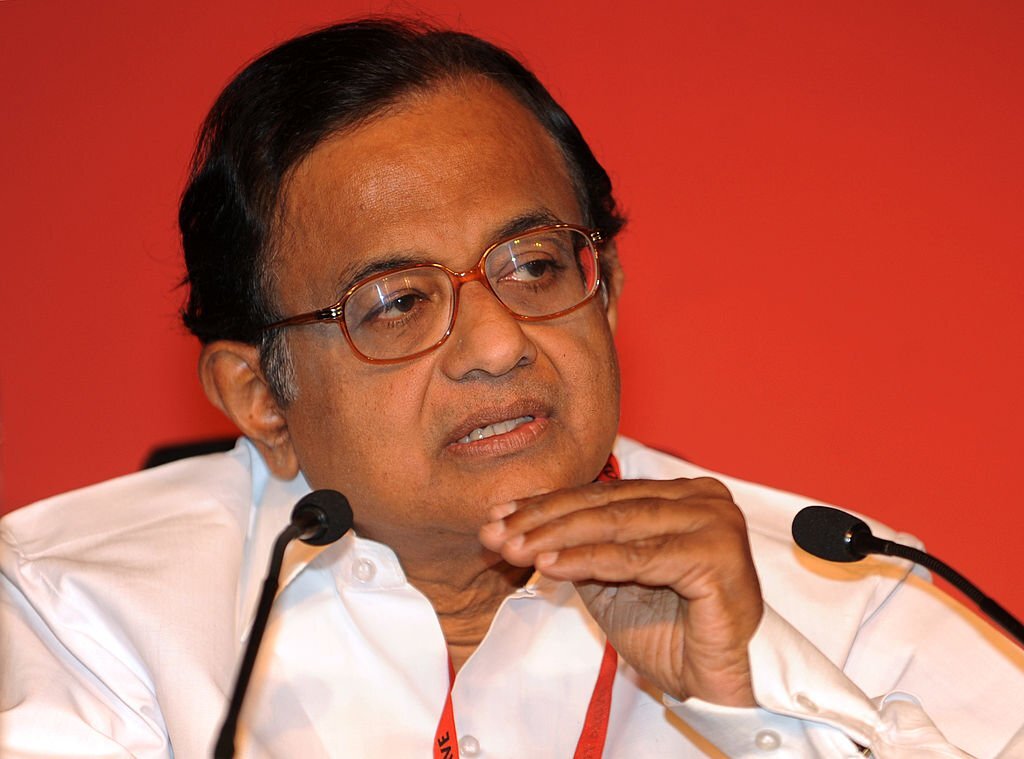
P. Chidambaram is an Indian politician from P. Chidambaram, a member of the Indian National Congress, and has held various key posts within the Government of India, including the Ministry of Finance and the Ministry of Home Affairs. The first time that he was under the scrutiny of agencies investigating was in 1997 when the CAG was unable to condemn the Voluntary disclosure of the income scheme (VDIS) which he had declared as Finance Minister in the United Front government; terming it as abusive due to the loopholes which allowed it to alter the data in order to gain benefit the financial interests for the confessional.
INX Media, Aircel-Maxis Case
The year 2006 was the time Subramanian Swamy said that the company owned by P. Chidambaram’s son Karti Chidambaram got 5 percent of Aircel to receive a portion of the Rs. 40 billion in compensation from Maxis Communications for the 74 percent share of Aircel. Swamy has accused Chidambaram of obstructing Foreign Investment Promotion Board clearance of the deal until his son was given the 5% stake in Siva’s company. After this, the matter was brought to the attention of the parliament by the opposition a number of times, calling for Chidambaram’s resignation. There was also the claim that his son Karti was the direct beneficiary in the 2G spectrum investigation. The allegations of widespread corruption perpetrated by the family members, Karti Chidambaram as well as Robert Vadra and Robert Vadra, with the aid of P. Chidambaram’s office, have been reported by the media in a sweeping manner. On the 20th of August, 2019 the anticipatory bail pleas made on behalf of P. Chidambaram were dismissed by the Delhi High Court. The court later ordered him to be detained at the request of CBI as well as the ED at his residence in August 2019. He is currently at Tihar Jail.











